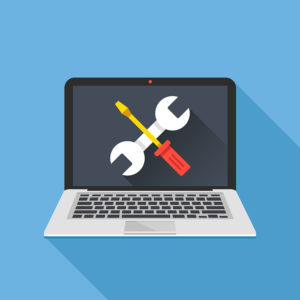Lean manufacturing is a concept rooted in recognizing and eliminating waste, usually by refining and making processes more efficient, with outcomes that drive value for the business. With proven manufacturing successes in the automotive industry and energy sector, among others, Lean principles have quickly expanded to other business operation facets, namely, industrial maintenance.
How is Lean maintenance different?
Lean maintenance shares the same fundamental goals with Lean manufacturing but with a different focus. The aim is still to eliminate waste; the focus involves recognizing diverse manufacturing equipment maintenance needs and creating a robust plan to address those needs.
Unlike general maintenance — which operates on a set routine schedule — Lean maintenance involves collecting and analyzing data on maintenance cycles to promote efficient service. In the case of maintenance, Lean concepts build upon Total Productive Maintenance (TPM) goals: Improved production efficiency and fewer operational problems.
Though its execution is sometimes complex, Lean maintenance boils down to two key goals:
- Making sure your machinery gets the right level of maintenance
- Making sure you’re performing maintenance efficiently and accurately
In meeting these goals, you can streamline your manufacturing processes so they ultimately result in several valuable benefits.
Why implement a Lean approach?
Just like Lean manufacturing is important for improving production efficiency, Lean maintenance is crucial for improving operational efficiency. Keeping machinery running longer, minimizing downtime, predicting failure, and eliminating waste during maintenance processes all translate into better-cared-for, more reliable equipment.
Implementing a Lean approach involves understanding the nature of maintenance and focusing on identifying how to best service the machinery in question. Through a Lean approach, maintenance is divided into three distinct strategies:
- Design-out maintenance is proactive and scheduled. Manufacturers predict downtime and offset it through production control to minimize disruption, completely controlling maintenance intervals.
- Preventive maintenance can either be predictive or scheduled, governed by condition or time contingencies. This maintenance is also proactive, though it’s subject to sporadic intervals based on the same governing conditions.
- Corrective maintenance is reactive and can be either immediate or deferred. With this type of maintenance, a machine runs to failure to maximize component life. Manufacturers do not predict maintenance intervals. However, they swiftly execute reactive plans to minimize downtime.
A thoroughly evaluated Lean maintenance approach includes all three of these strategies but may emphasize one over the others, depending on operations.

Overcoming implementation goals
While most facility leaders have scheduled maintenance plans in place for their equipment, implementing Lean maintenance processes is more difficult. Several barriers can impede Lean initiatives, including:
- Lack of data collection protocols or insufficient data to determine machine maintenance cycles.
- Poor cooperation among maintenance workers or machine operators, leading to deviation from Lean principles.
- Unclear objectives or goals, leading to inefficient adoption of Lean processes or the wrong approach to waste reduction.
- Poor oversight or lack of initiative in adopting and executing a Lean maintenance plan.
Thankfully, a simple way to overcome these barriers to adoption and stymie issues exists once adopted. Maintenance consulting services — provided by Lean-minded experts — help manufacturers get started on the path toward more efficient equipment oversight. Having an objective eye can offer powerful potential for recognizing opportunities for a Lean maintenance approach.
